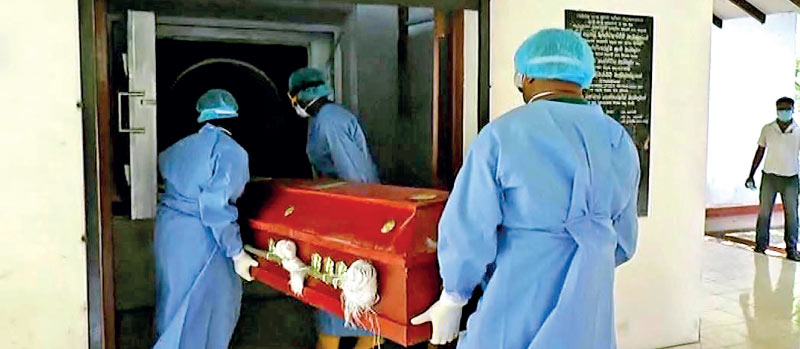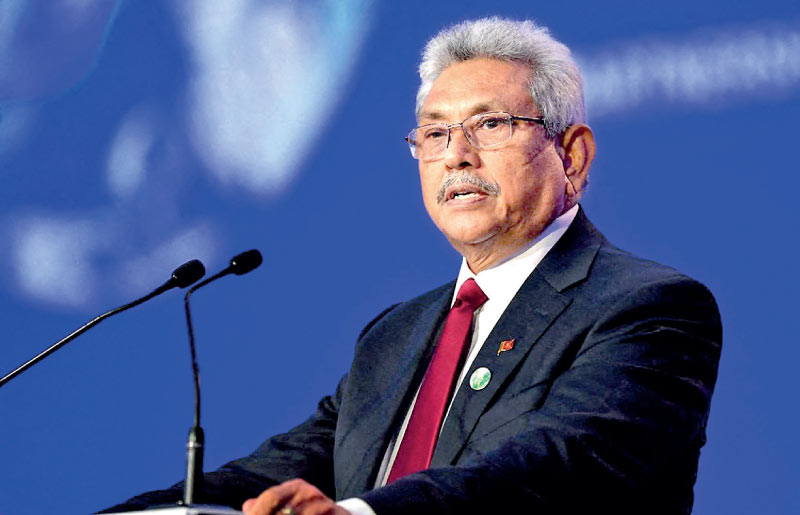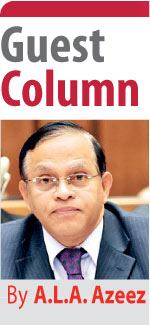Monday Feb 16, 2026
Monday Feb 16, 2026
Monday, 8 April 2024 00:23 - - {{hitsCtrl.values.hits}}


Gotabaya Rajapaksa
 The whole issue of forced cremation that shook the Muslim community in 2020/21 was entirely rooted in racism.
The whole issue of forced cremation that shook the Muslim community in 2020/21 was entirely rooted in racism.
It is the Gotabaya Government which both piloted and enforced to the full measure this racist policy, aided by experts whom the President himself effectively appointed.
Now that it has been demonstrated, after a series of international setbacks for the Government and the erosion of public trust in Government leaders and experts, the question of tendering an open apology to the Muslim community and to those who opposed the policy tooth and nail as it was ruthlessly enforced has now come up.
As admitted, Thondaman’s Ministry of Water Resources has found out that the COVID-19 virus doesn’t spread through ground water. Perhaps, Ali Sabry’s Ministry of Foreign Affairs may have found out that the damage that this racist policy implemented by the Government, of which he remained an integral part (as Justice Minister), heaped on the country internationally was avoidable but horrendous.
Thondaman’s finding was about a key factor cited/used by the proponents and prosecutors of that racist policy, to advance their objective of isolating, scaring, and stereotyping Muslims. It doesn’t deal with the whole of the racist policy per se. Likewise, perhaps Ali Sabry’s finding is about its international ramifications for the country.
These two are, however, two separate but interconnected components of the racist policy, not the racist policy in itself.
A racist policy of this nature, which resulted in such monumental damage to the country in its external theatre and to the community domestically in every aspect of its life cannot just be shovelled under the carpet of national harmony and reconciliation, through a bland statement of apology, impelled only by the two factors that Thondaman and Ali Sabry are concerned about.
When the challenge of racism manifested in that policy was ‘wholesome’, deep-rooted, intersecting (with other factors, influencing the ‘lived’ reality), a State policy abnegating and rejecting that challenge in all its forms should be comprehensive, meaningful and cast-iron. It should define the phenomena, identify its proponents, promoters and perpetrators, pathways to justice and reparation, and an unswerving verifiable and transparent commitment to action to prevent and combat that phenomena at all times.
That means it should be part of a Policy of Non-recurrence beneficial to all communities and the people of Sri Lanka as a whole that should be adopted through an inclusive participatory process and vigorously pursued. That policy should be underpinned by credible legal guarantees.
Is the Government of Sri Lanka ready to take such a long overdue bold step in the direction of creating a reconciled, confident, non-self-doubting, progressive Sri Lanka?
So, let Thondaman apologise, if he would like to, for that part of the racist policy that projected COVID-19 as spreadable through groundwater. Let Ali Sabry apologise, if he would desire so, for international damage that the racist policy caused to Sri Lanka, and for how he remained reticent – despite all the stories to the contrary he tells about how he fought silently within his Government against that policy – and chose still to be part of Gotabaya Cabinet.
But these can never be a substitute for a Policy of Non-recurrence that is much needed today.